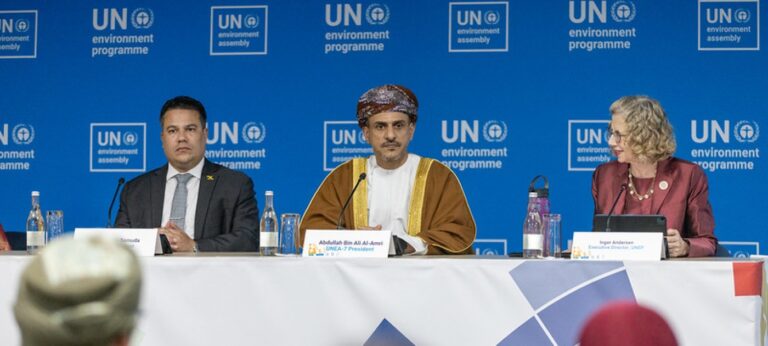
“This decision about Afghanistan is not just about Afghanistan. It’s about ending an era of major military operations to remake other countries”
Washingon D.C.: Last night as the United States completely withdrew its forces from Kabul, President Joe Biden claimed today (IST) that leaving August the 31st was not due to an arbitrary deadline; “it was designed to save American lives”.
“My fellow Americans, the war in Afghanistan is now over,” Biden declared. He added: We’ve been a nation too long at war. If you’re 20 years old today, you have never known an America at peace.”
With the withdrawal of the United States military, the US has ended 20 years of war in Afghanistan — the longest war in American history.
“This decision about Afghanistan is not just about Afghanistan. It’s about ending an era of major military operations to remake other countries,” he stressed. He though warned: And for anyone who gets the wrong idea, let me say it clearly. To those who wish America harm, to those that engage in terrorism against us and our allies, know this: The United States will never rest. We will not forgive. We will not forget. We will hunt you down to the ends of the Earth, and we will — you will pay the ultimate price.”
The revised US strategy on Afghanistan post withdrawal of troops will see more reliance on diplomacy, international influence, and humanitarian aid. “We’ll continue to push for regional diplomacy and engagement to prevent violence and instability. We’ll continue to speak out for basic rights of the Afghan people, especially women and girls, as we speak out for women and girls all around the globe. And I’ve been clear that human rights will be the center of our foreign policy,” Biden said.
The US President responded to widespread criticism of his decision to withdraw troops from Afghanistan, and stated: “I give you my word: With all of my heart, I believe this is the right decision, a wise decision, and the best decision for America.”
He elaborated: “To me, there are two that are paramount. First, we must set missions with clear, achievable goals — not ones we’ll never reach. And second, we must stay clearly focused on the fundamental national security interest of the United States of America.”
“This is a new world,” he said, and pointed out that the terror threat had metastasized across the world, well beyond Afghanistan. “We face threats from al-Shabaab in Somalia; al Qaeda affiliates in Syria and the Arabian Peninsula; and ISIS attempting to create a caliphate in Syria and Iraq, and establishing affiliates across Africa and Asia.”
He also referred to the USA’s engagement in a “serious competition” with China, and also to his dealing with the challenges on multiple fronts with Russia – “We’re confronted with cyberattacks and nuclear proliferation”.
He claimed: “And there’s nothing China or Russia would rather have, would want more in this competition than the United States to be bogged down another decade in Afghanistan.”
He stressed that as the US turned the page on the foreign policy that had guided the nation the last two decades, “we’ve got to learn from our mistakes”.
Stressing on the need to shore up America’s competitiveness to meet the new challenges in the competition for the 21st century, he said, “we can do both: fight terrorism and take on new threats that are here now and will continue to be here in the future”.
Biden went on to further justify his decision claiming that the fundamental obligation of a President, “in my opinion, is to defend and protect America — not against threats of 2001, but against the threats of 2021 and tomorrow”.
That, he said, was the guiding principle behind his decisions about Afghanistan. “I simply do not believe that the safety and security of America is enhanced by continuing to deploy thousands of American troops and spending billions of dollars a year in Afghanistan,” he reiterated. While acknowledging that the threat from terrorism continues in its pernicious and evil nature, he said it has changed, expanded to other countries. “Our strategy has to change too. We will maintain the fight against terrorism in Afghanistan and other countries. We just don’t need to fight a ground war to do it. We have what’s called over-the-horizon capabilities, which means we can strike terrorists and targets without American boots on the ground — or very few, if needed. We’ve shown that capacity just in the last week. We struck ISIS-K remotely, days after they murdered 13 of our servicemembers and dozens of innocent Afghans,” he said. He added: And to ISIS-K: We are not done with you yet.”
As Commander-in-Chief of the US military, Biden said he firmly believed the best path to guard the nation’s safety and security lied in a “tough, unforgiving, targeted, precise strategy that goes after terror where it is today, not where it was two decades ago”. He added: “That’s what’s in our national interest.”
Questioning those who said the Americans should have stayed in Afghanistan, Biden said that things had changed. “They ask, “Why don’t we just keep doing what we were doing? Why did we have to change anything?” The fact is: Everything had changed. My predecessor had made a deal with the Taliban. When I came into office, we faced a deadline — May 1. The Taliban onslaught was coming. We faced one of two choices: Follow the agreement of the previous administration and extend it to have — or extend to more time for people to get out; or send in thousands of more troops and escalate the war. To those asking for a third decade of war in Afghanistan, I ask: What is the vital national interest? In my view, we only have one: to make sure Afghanistan can never be used again to launch an attack on our homeland,” he said.
“While recalling that the US went to Afghanistan only because the US was attacked by Osama bin Laden and al Qaeda on September 11, 2001, and they were based in Afghanistan, he said “We delivered justice to bin Laden on May 2nd, 2011 — over a decade ago. Al Qaeda was decimated.”
Biden went on to ask his detractors: “If we had been attacked on September 11, 2001, from Yemen instead of Afghanistan, would we have ever gone to war in Afghanistan — even though the Taliban controlled Afghanistan in 2001?” He said he believed the honest answer was “no.” “That’s because we had no vital national interest in Afghanistan other than to prevent an attack on America’s homeland and their friends. And that’s true today. We succeeded in what we set out to do in Afghanistan over a decade ago. Then we stayed for another decade. It was time to end this war,” he said.
Biden claimed that by the time he came to office, the Taliban was in its strongest military position since 2001, controlling or contesting nearly half of the country. In the 17 days that the US operated in Kabul after the Taliban seized power, it engaged in an around-the-clock effort to provide every American the opportunity to leave. “I urge all Americans to join me in grateful prayer for our troops and diplomats and intelligence officers who carried out this mission of mercy in Kabul and at tremendous risk with such unparalleled results,” he said.
Referring to his predecessor Donald Trump, who had signed the agreement with the Taliban to remove U.S. troops by May 1, 2021, he said the agreement included no requirement that the Taliban work out a cooperative governing arrangement with the Afghan government. “But it did authorize the release of 5,000 prisoners last year, including some of the Taliban’s top war commanders, among those who just took control of Afghanistan,” he said.
Referring to the previous US administration’s agreement, Biden pointed out that it said that if the US stuck to the May 1 deadline that they had signed on to leave by, the Taliban wouldn’t attack any American forces, but if it stayed, all bets were off.
“So we were left with a simple decision: Either follow through on the commitment made by the last administration and leave Afghanistan, or say we weren’t leaving and commit another tens of thousands more troops going back to war. That was the choice — the real choice — between leaving or escalating. I was not going to extend this forever war, and I was not extending a forever exit,” Biden said. He said he was left with a “simple decision: Either follow through on the commitment made by the last administration and leave Afghanistan, or say we weren’t leaving and commit another tens of thousands more troops going back to war”. He added: “That was the choice — the real choice — between leaving or escalating. I was not going to extend this forever war, and I was not extending a forever exit.”
There was the financial angle too. More than $2 trillion were spent in Afghanistan — a cost that researchers at Brown University estimated would be over $300 million a day for 20 years in Afghanistan. “Yes, the American people should hear this: $300 million a day for two decades,” he said.
In April, Biden made the decision to end the war. As part of that decision, the US set the date of August 31, 2021 for American troops to withdraw. The assumption was that more than 300,000 Afghan National Security Forces that the US had trained over the past two decades and equipped would be a strong adversary in their civil wars with the Taliban. That assumption — that the Afghan government would be able to hold on for a period of time beyond military drawdown — turned out not to be accurate.
“But I still instructed our national security team to prepare for every eventuality — even that one. And that’s what we did. So, we were ready when the Afghan Security Forces — after two decades of fighting for their country and losing thousands of their own — did not hold on as long as anyone expected. We were ready when they and the people of Afghanistan watched their own government collapse and their president flee amid the corruption and malfeasance, handing over the country to their enemy, the Taliban, and significantly increasing the risk to U.S. personnel and our Allies. As a result, to safely extract American citizens before August 31st — as well as embassy personnel, Allies and partners, and those Afghans who had worked with us and fought alongside of us for 20 years — I had authorized 6,000 troops — American troops — to Kabul to help secure the airport,” he explained.
Quoting General Kenneth Franklin McKenzie Jr. who currently serves as the 14th commander of the United States Central Command, Biden said this was the way the mission was designed – It was designed to operate under severe stress and attack. And that’s what it did.
According to Biden, the decision to end the military airlift operations at Kabul airport was based on the unanimous recommendation of my civilian and military advisors — the Secretary of State, the Secretary of Defense, the Chairman of the Joint Chiefs of Staff and all the service chiefs, and the commanders in the field.
Their recommendation was that the safest way to secure the passage of the remaining Americans and others out of the country was not to continue with 6,000 troops on the ground in harm’s way in Kabul, but rather to get them out through non-military means.
“We completed one of the biggest airlifts in history, with more than 120,000 people evacuated to safety. That number is more than double what most experts thought were possible. No nation — no nation has ever done anything like it in all of history. Only the United States had the capacity and the will and the ability to do it, and we did it today,” he said. He added: “Since March, we reached out 19 times to Americans in Afghanistan, with multiple warnings and offers to help them leave Afghanistan — all the way back as far as March. After we started the evacuation 17 days ago, we did initial outreach and analysis and identified around 5,000 Americans who had decided earlier to stay in Afghanistan but now wanted to leave.
“Now we believe that about 100 to 200 Americans remain in Afghanistan with some intention to leave. Most of those who remain are dual citizens, long-time residents who had earlier decided to stay because of their family roots in Afghanistan,” he said, and asserted that the US remained committed to get them out if they want to come out.
Biden also referred to the United Nations Security Council’s resolution of August 30, 2021, that sent a clear message about what the international community expects the Taliban to deliver on moving forward, notably freedom of travel, freedom to leave.
“And together, we are joined by over 100 countries that are determined to make sure the Taliban upholds those commitments. It will include ongoing efforts in Afghanistan to reopen the airport, as well as overland routes, allowing for continued departure to those who want to leave and delivery of humanitarian assistance to the people of Afghanistan. The Taliban has made public commitments, broadcast on television and radio across Afghanistan, on safe passage for anyone wanting to leave, including those who worked alongside Americans. We don’t take them by their word alone but by their actions, and we have leverage to make sure those commitments are met,” Biden said.
Biden thanked those who offered to accommodate Afghan allies to their homes around the world, including in America. “I take responsibility for the decision,” he said.
– global bihari bureau





